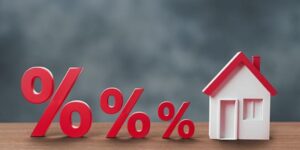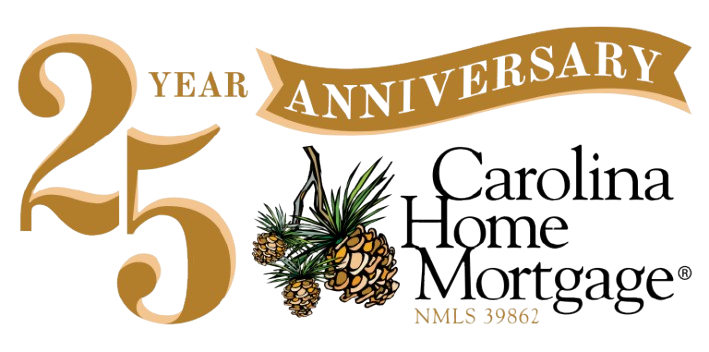How a Variable Rate Mortgage Can Save You Money on Interest
Are You Paying Too Much for Your Mortgage?
Buying a home is a big financial decision, and the type of mortgage you choose can affect how much you pay in the long run. Many people go straight for a fixed-rate mortgage without considering other options. But what if there was a way to save money on interest?
A variable interest rate mortgage might be the answer. Unlike a fixed-rate mortgage, where your interest rate stays the same, a variable interest rate mortgage can change over time. If interest rates drop, your monthly payments could go down too. This flexibility can help you save money, especially if you plan to move or refinance later.
At Carolina Home Mortgage, we specialize in helping homebuyers find the best loan options, including adjustable-rate mortgages. Let’s explore how a variable interest rate mortgage works and how it might benefit you.
How Does a Variable Interest Rate Mortgage Work?
A variable interest rate mortgage, also called an adjustable-rate mortgage (ARM), changes based on market rates. While a fixed-rate mortgage locks in one rate for the entire loan, an ARM starts with a low fixed rate for a set period (like 5, 7, or 10 years). After that, the rate can adjust based on a set formula.

Key Features of Variable Rate Mortgages
- Lower Starting Rate – The initial interest rate is usually lower than a fixed-rate mortgage.
- Adjustment Periods – After the fixed period, the rate can change, often once a year.
- Rate Caps – Limits on how much the rate can increase over time, keeping changes manageable.
- Tied to an Index – The rate is based on a financial index plus a lender’s margin. If the index goes down, so does your payment.
Understanding these features can help you decide if a variable interest rate mortgage is right for you.
Who Should Get an Adjustable-Rate Mortgage?
A variable interest rate mortgage isn’t for everyone, but it can be a great option for the right buyer. Consider it if:
- You Plan to Sell or Refinance Before the Rate Changes – If you won’t stay in the home long, you can take advantage of the lower starting rate.
- You Expect Interest Rates to Stay Low – If rates remain stable or fall, you can enjoy lower payments.
- You Want to Afford More Home – A lower initial rate might allow you to qualify for a bigger loan.
- You Have a Flexible Budget – If your income is likely to grow, you can handle potential rate increases.
If any of these situations apply to you, an adjustable-rate mortgage could help you save on housing costs.
Benefits of a Variable Interest Rate Mortgage
Many homebuyers and investors choose a variable interest rate mortgage for these reasons:
1. Lower Initial Payments
ARMs often start with lower interest rates, meaning smaller monthly payments at first. This can free up money for savings or other expenses.
2. Potential for Future Savings
If interest rates go down, your mortgage rate could too—without the need to refinance.
3. Increased Home Buying Power
With lower initial payments, you might qualify for a larger loan and afford a home that otherwise wouldn’t fit your budget.
4. Ideal for Short-Term Homeowners
If you expect to move before the rate changes, you can enjoy the low starting rate without worrying about future increases.
While these benefits are appealing, there are also some risks to consider.
Risks of a Variable Interest Rate Mortgage
An ARM can save you money, but it also comes with uncertainties:
- Your Payments Could Increase – If interest rates go up, your mortgage payment may rise too.
- Budgeting Can Be Tricky – Since rates fluctuate, it’s harder to predict long-term costs.
- You Might Need to Refinance – If rates climb too much, you may need to refinance to a fixed-rate mortgage, which involves extra fees.
To manage these risks, it’s important to work with an experienced lender who can help you decide if an adjustable-rate mortgage is right for you.
How to Choose the Best Mortgage for You
Deciding between a variable interest rate mortgage and a fixed-rate mortgage depends on your financial situation and future plans. Ask yourself:
- How long do I plan to stay in this home?
- Am I comfortable with possible changes in my monthly payment?
- Do I expect my income to increase in the future?
- Can I handle potential interest rate increases?
If you’re unsure, talking to a mortgage expert can help you choose the right option.
How to Apply for a Variable Interest Rate Mortgage

Applying for a mortgage doesn’t have to be overwhelming. At Carolina Home Mortgage, we make the process simple:
Step 1: Get Pre-Approved
Find out how much you can afford and show sellers you’re a serious buyer.
Step 2: Compare Loan Options
Our team will help you explore different mortgage types, including adjustable-rate mortgages.
Step 3: Submit Your Application
We’ll guide you through the paperwork and make sure you provide the right documents.
Step 4: Loan Processing & Approval
We’ll verify your financial details and ensure you meet all loan requirements.
Step 5: Closing
Once approved, you’ll sign the final documents and get the keys to your new home!
By working with Carolina Home Mortgage, you’ll have expert guidance every step of the way.
Final Thoughts
A variable interest rate mortgage can be a great way to save money on interest, especially if you plan to sell or refinance before the rate changes. It offers lower starting payments and potential long-term savings. However, it’s important to understand the risks and make sure it’s the right choice for your financial goals.
At Carolina Home Mortgage, we’re here to help you make informed decisions. Whether you’re a first-time homebuyer or a seasoned investor, our team will guide you through the mortgage process with personalized support.
Ready to see how an adjustable-rate mortgage can work for you? Contact Carolina Home Mortgage today!
